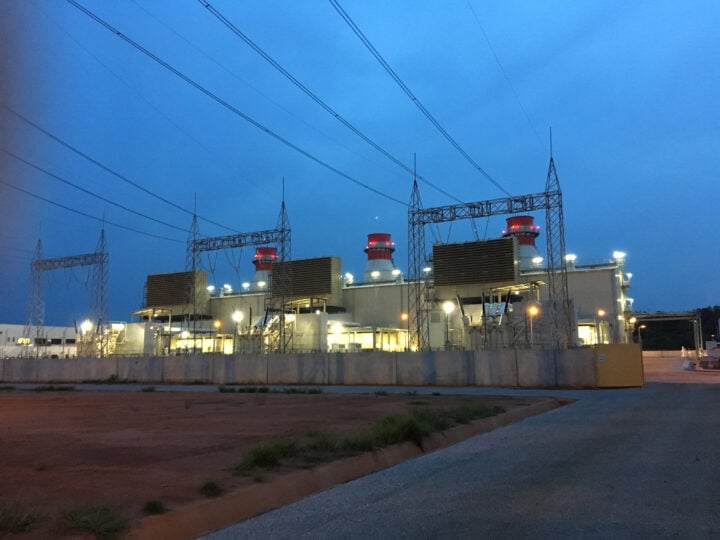The Azura power plant in Edo state
With the monthly obligations to the privately-owned Azura Power Plant continuing to hurt the nation’s finances, the federal government has come up with a number of emergency mitigating measures, TheCable can report.
Having signed a World Bank partial risk guarantee (PRG) for the project, Nigeria is at the risk of sovereign default which will impact negatively on the government’s ability to secure financing from global markets.
Nigeria is currently struggling with an economic crisis, with the GDP contracting by 6.63 per cent in the second quarter of 2020 — largely because of COVID-19 pandemic and low oil prices.
The emergency measures approved by the federal government to cope with the Azura albatross include waivers and moratorium, senior government officials have confirmed to TheCable.
Advertisement
Government hopes this will bring down the monthly invoices issued by Azura.
All government agencies that receive payments from Azura are to suspend such till December 2021.
However, it is legally complicated for Azura to suspend loan payments to the Bank of Industry (BoI) because of the intercredit agreement between the bank and 15 other lenders.
Advertisement
To address the challenge, BoI has been directed to automatically credit government accounts with loans repaid by Azura till December 2021.
The money will then be recycled to meet obligations to the 461mw power plant.
The total liability on the government arising from the moratorium arrangement with BoI from June 2020 to December 2021 is $20 million.
BoI has been asked to send a repayment proposal to the federal government to start in January 2022 and end in January 2027, TheCable learnt.
Advertisement
NNPC TO GRANT WAIVERS
The federal government also directed the Nigerian Gas Company (NGC) and the Nigerian Petroleum Development Company (NPDC) to grant temporary waivers to Azura.
NGC and NPDC are subsidiaries of the Nigerian National Petroleum Corporation (NNPC).
TheCable understands that NGC has been asked to temporarily suspend its capacity charge, meaning Azura will no longer pay the commodity charge of 8.4 cents per one million British Thermal Units (MMBtu) and a capacity charge of 75.6 cents per MMBtu.
Advertisement
This alone is expected to reduce the average monthly invoice to Azura by $2.9 million.
The government will benefit from the cost-saving as it will reduce Azura’s operational invoices to the Nigerian Bulk Electricity Trader (NBET), officials told TheCable.
Advertisement
In addition, NPDC, which supplies gas to Azura through its JV with Seplat, is to reduce the price from $3.15/MMBtu to $2.5/MMBtu — exclusively for the plant.
NPDC will waive an appropriate share of its revenues from the JV to bear 100 per cent of the cost for the temporary price reduction.
Advertisement
Through this, Azura’s invoices to NBET will reduce by another $1.65 million per month.
THE AZURA ALBATROSS
Advertisement
On August 21, 2015, the federal government signed the PRGs with the World Bank to provide backing for Azura after the previous government had stalled because of the absence of a sovereign immunity clause in the put call option agreement (PCOA).
Azura is the only private power company in Nigeria that enjoys sovereign guarantee, and this has conferred a special privilege on the plant as it is allowed to produce and transmit at higher capacities than other plants.
Others are often asked to lower their production so that Azura’s power can be taken on the national grid, apparently to justify the country’s minimum monthly payment of $30 million to the plant under the “take or pay” obligation.
As previously reported by TheCable, the Goodluck Jonathan had signed a series of agreements with Azura — namely the power purchase agreement (PPA) on April 22, 2013, the PCOA on October 22, 2014 and the PCOA “direct agreement” on December 18, 2014.
However, Jonathan’s administration did not sign the contentious PRGs because of the failure to indemnify Nigeria.
DOWNLOAD THE FGN/WORLD BANK INDEMNITY AGREEMENT
DOWNLOAD ADOKE’S LETTER TO JONATHAN ON AZURA
DOWNLOAD CHINEDU NEBO’S LETTER TO JONATHAN ON AZURA
Mohammed Bello Adoke, then attorney-general of the federation (AGF), said the PCOA was signed by Ngozi Okonjo-Iweala, then finance minister, before she sought the AGF’s legal advice.
Adoke said the PCOA was injurious to the interest of Nigeria and that a sovereign guarantee would put the country’s foreign assets at risk.
Despite pressure from Chinedu Nebo, then minister of power, Jonathan refused to give the go-ahead for the PRGs.
This was the state of play as of May 29, 2015 when Jonathan left power.
However, Abdullahi Ahmed Yola, who was the solicitor-general of the federation and acted as the AGF in the first six months of President Muhammadu Buhari, came under pressure from senior presidency officials to change the legal advice.
Yola caved in and Nigeria executed the PRGs in August 2015.
Officials of the Buhari administration have argued that the country was already bound by the PPA and PCOA signed by the Jonathan administration.
However, TheCable raised five questions on the enforceability of the PPA and PCOA when Azura had not built any plant as at the time the PRG was executed in August 2015.
The financial obligations to Azura have weighed heavily on the federal government since the plant came on stream in 2018 — with Babatunde Fashola, former minister of power, declaring that the country was not keen on granting sovereign guarantee to any private power company again.
Editor’s note: This report has been edited to reflected new information.
Add a comment







